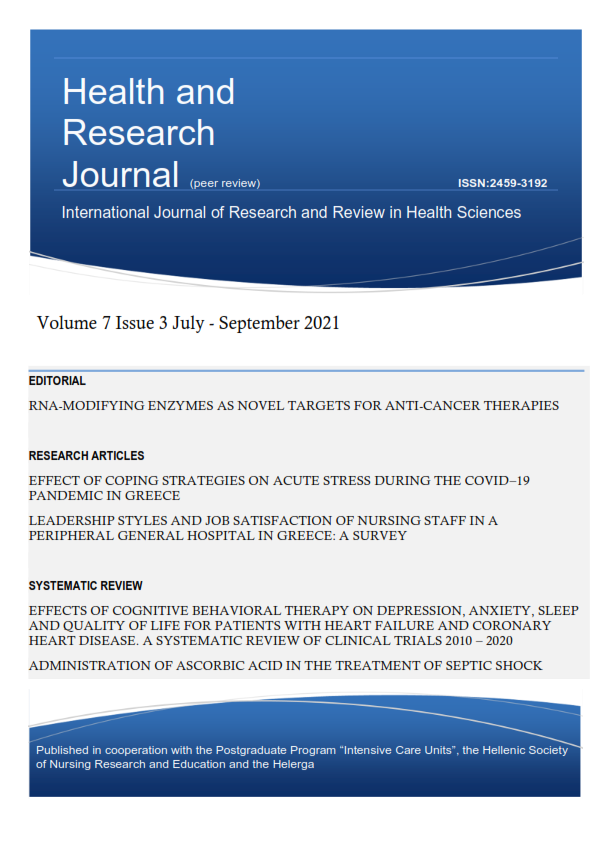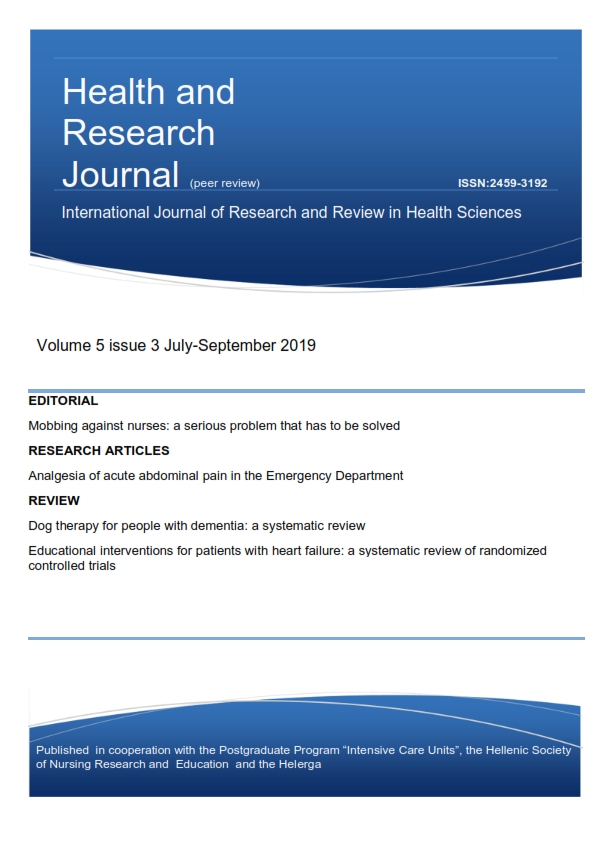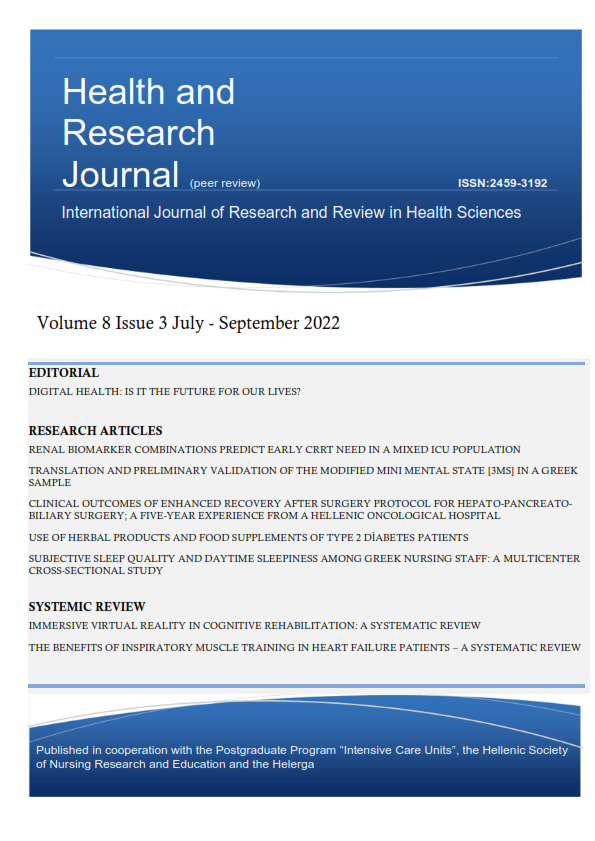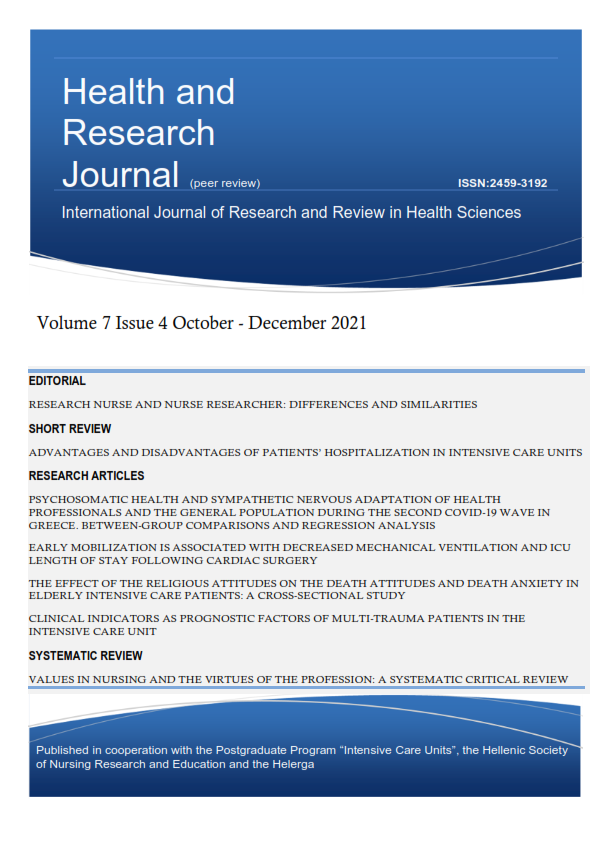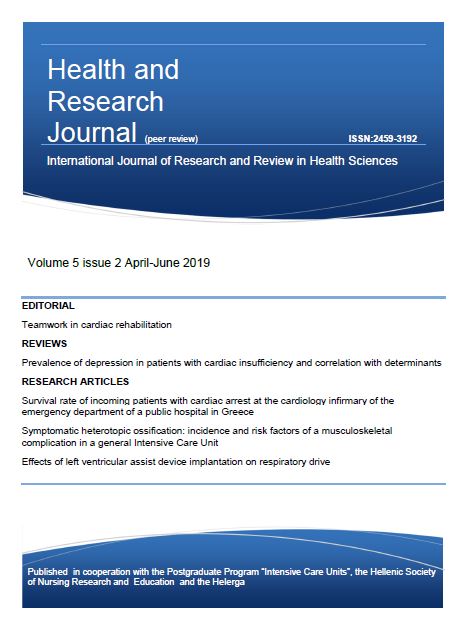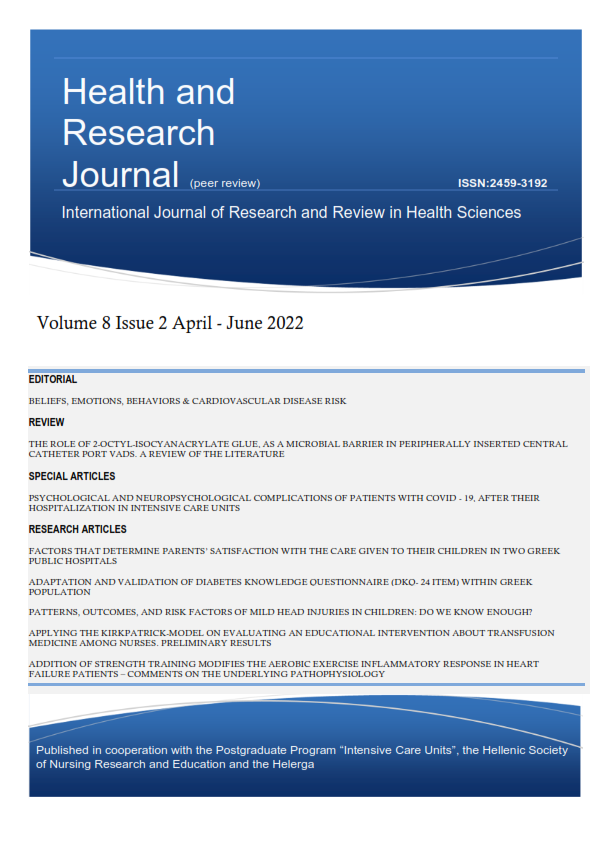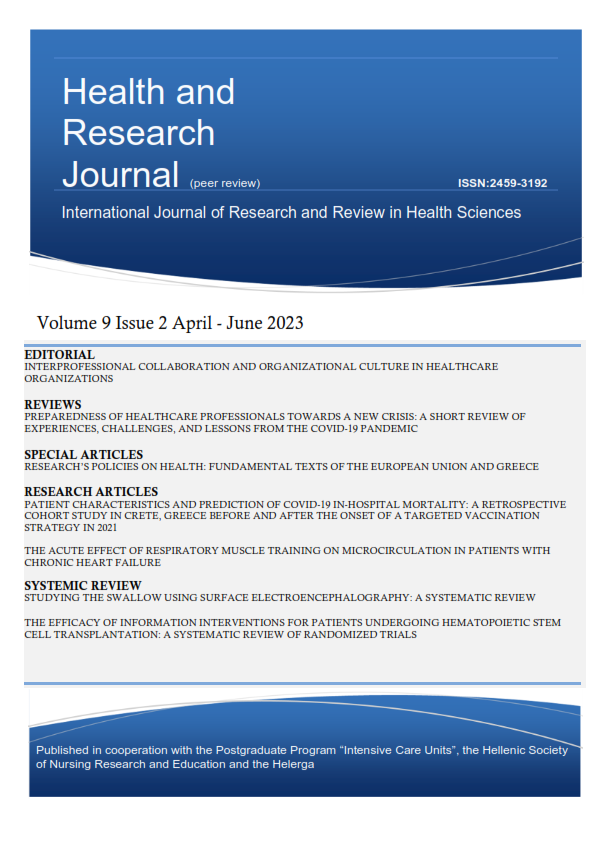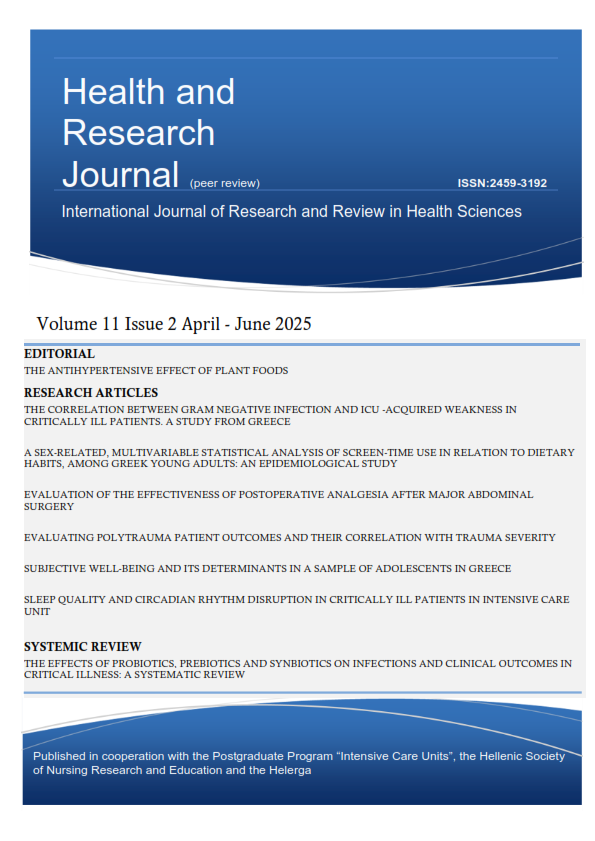Self-care management, knowledge, self-efficacy for medication and Quality of Life in chronic heart failure patients
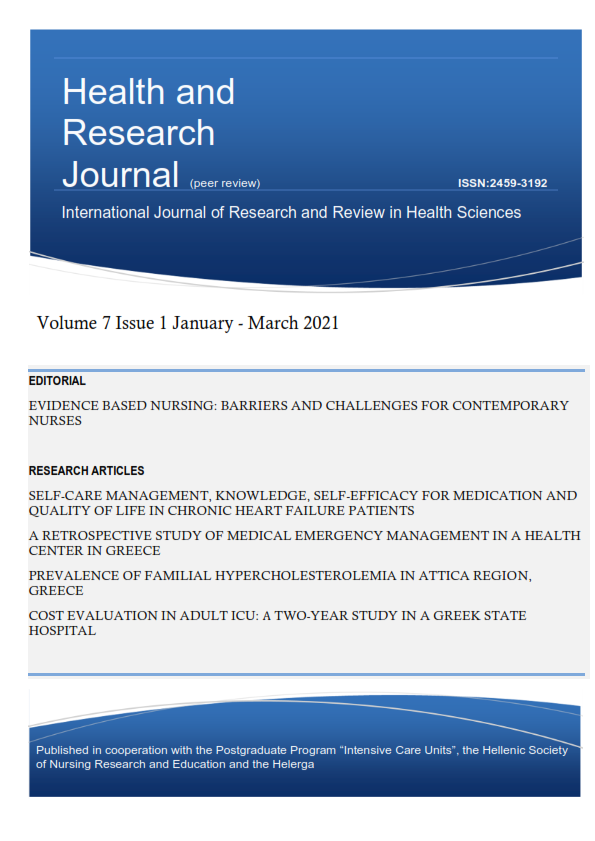
Abstract
Background: The management of Heart Failure (HF) is the cornerstone for the appropriate therapy and the knowledge obtained concerning the disease is known to affect self-care behaviours.
Aim: The aim was to test the association between self-care management, knowledge, self-efficacy for medication and quality of life in chronic HF patients.
Material and Method: A cross-sectional study was conducted and four questionnaires were used: Atlanta Heart Failure Knowledge Test (AHFK), Minnesota Living with Heart Failure (HMLHFQ), Self-Efficacy for Appropriate Medication Use Scale (SEAMS), European Heart Failure Self-care Behaviour Scale (EHFScBS-9). Multiple linear regression analysis was performed to identify independently associated variables with study subscales.
Results: The sample consisted of 122 Heart Failure patients (102 men-20 women) with mean age 67.1 years (SD=12.3). Scores on Fluid and sodium management, Physical activity and recognition of deteriorating symptoms were significantly greater as compared with scores on Adhering to recommendations (p<0.001), indicating that the needs concerning Adhering to recommendations were greater. Linear regression analyses showed that score on knowledge-test and New York Heart Association (NYHA) class were predictive of medication adherence factors. Better knowledge was associated with better medication adherence, while worse scores were found in subjects with NYHA class III or IV as compared to those with NYHA class I or II. Additionally, Knowledge and years of Education were associated with Self-care behaviour factors (β=0.44, SE=0.08, p<0.001).
Conclusions: Patients at a higher level of HF knowledge show better adherence to the Medication. Self-care behavior and life quality are improved.
Article Details
- How to Cite
-
Kroustalli, E., Papadopoulos, C. H., Vasileiadis, I., Kalokairinou, A., Kiokas, S., Karatzanos, E., & Nanas, S. (2021). Self-care management, knowledge, self-efficacy for medication and Quality of Life in chronic heart failure patients. Health & Research Journal, 7(1), 4–16. https://doi.org/10.12681/healthresj.26094
- Section
- Original Articles
Copyright notice:
Authors retain copyright of their work and grant the Health and Research Journal the right of first publication.
License:
Articles are published under the Creative Commons Attribution 4.0 International License (CC BY 4.0). This license permits use, sharing, adaptation, distribution, and reproduction in any medium or format, including for commercial purposes, provided that appropriate credit is given to the author(s) and the original publication in this journal, a link to the license is provided, and any changes are indicated.
Attribution requirement:
Any reuse must include the article citation and DOI (where available), and indicate if changes were made.



